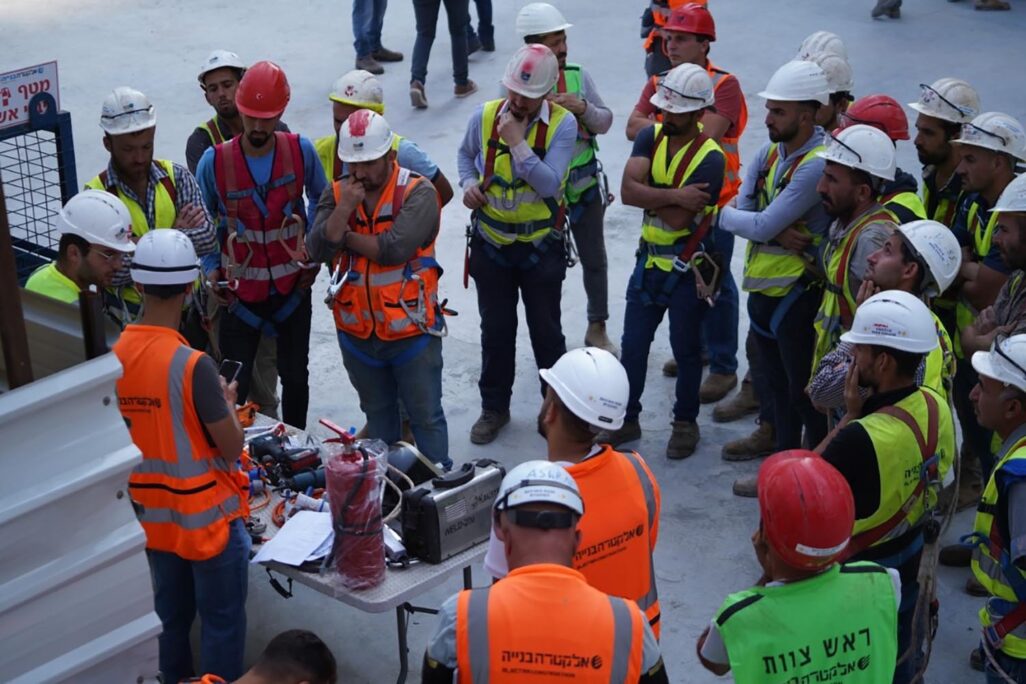
After prolonged discussion, The Labor and Welfare Committee decided this week to approve a proposal abandoning a budgetary mechanism meant to incentivize workplace safety. The proposal institutes a fixed increase in the contributions that employers are required to pay to the National Insurance Institute, Israel’s social security agency, in place of a proposed but never-implemented differential scale that would offer discounts to safer workplaces. In addition, a new governmental committee will be formed to maintain safety at work.
In 2018, the government sought to enact a temporary order to establish a differential rate for employers’ social security contributions, which would be affected by the level of safety and the safety record of the specific employer. However, the model never came to fruition, and all employers were required to pay the minimum rate of 0.1% of each worker’s salary.
Now, the government intends to completely withdraw from the differential model that was supposed to give employers an incentive to improve safety, and instead set a flat rate for employers’ social security contributions of 0.1% of the employees’ salary over the next five years, without an increase to 0.2% as originally planned. The proposal will be submitted as part of the Arrangements Law (a series of economic reforms which must be passed along with the state budget.
This measure, as explained in the bill, is intended to deal with the increase over the past decade in spending on pensions for victims of work accidents. In 2012, the government’s expenditure on disability benefits for injured workers was about 2.6 billion shekels ($710 million); in 2022 it rose to about 5.7 billion shekels ($1.56 billion), and the Finance Ministry expects the trend to continue.
Members of Knesset Efrat Raiten (Labor) and Aida Toma Suleiman (Hadash-Ta'al) protested that the money collected according to the work risk section is not actually used to prevent risks and deal with accidents.
"When we hear that safety inspectors are leaving because their machines are not taken care of, and then we see this money that goes to the Treasury, it is clear to us why the expense graph for accidents is only increasing," Raiten said. Toma Suleiman added: "The National Insurance itself admits that this component had no contribution in reducing work accidents."
Safe Work Israel, an advocacy organization for construction safety standards, responded that unlike the old differential arrangement which was aimed at preventing accidents, the new arrangement completely abandons this original goal. According to them, its purpose is only to collect additional sums from the public of employers for the purpose of financing pensions.
"We believe that there is no place for a separate collection mechanism to finance pensions due to injury at work," explained Dr. Hadas Tagari, director of Safe Work Israel. "We support the establishment of a separate collection mechanism from employers to finance actions to prevent and reduce work accidents. This, in order to reduce the harm caused to the lives of workers and their health due to the poor level of occupational safety in the State of Israel, as well as to reduce the scope of payments for them.”
Tagari added that the anchoring of a permanent collection mechanism to finance the increasing pensions in view of the state's failure to reduce accidents, constitutes a negative incentive for the state to allocate the resources and efforts required to reduce accidents.
Every year, more than 70 workers are killed in work accidents, and about 50 thousand workers are injured during their work (not including victims of road accidents on the way to and from work, who are also recognized as work accident victims by the National Insurance).
“We propose not to approve the section, unless it is stipulated in it that the funds collected in accordance with it will be fully allocated to the prevention of workplace accidents," wrote Tagari. "For example, in order to finance hundreds of jobs for occupational safety inspectors in accordance with the standard that will be determined by the number of employees in the economy, and in order to open a hotline for complaints about occupational safety violations at the Occupational Safety Directorate.”
This article was translated from Hebrew by Brooke Levy.






